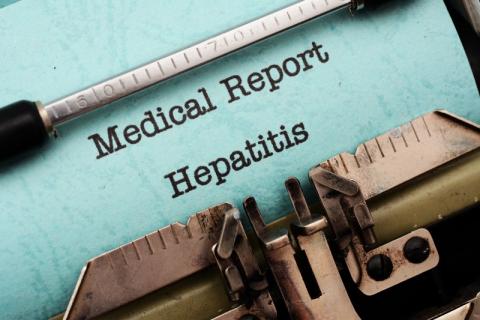World Hepatitis Day call to get tested

To mark World Hepatitis Day today, the Public Health Agency (PHA) is reminding people who think they may be at risk from hepatitis B or C infection to get tested.
Viral hepatitis kills 1.5 million people worldwide each year. That’s as many people as HIV/ AIDS. Although hepatitis is not common in Northern Ireland, it is very common in other parts of the world, with an estimated 400 million people living with chronic hepatitis B and C worldwide.
Both viruses are spread by contact with blood or bodily fluids of an infected person.
Hepatitis B tends to be contracted from mother to baby or from contact with infected blood in areas of the world where hepatitis B is more common. In Northern Ireland, new infections with hepatitis B tend to be from sexual contact.
Hepatitis C is more commonly associated with sharing needles or equipment for injecting drugs. It can also be spread by having had a tattoo or body piercing using non-sterile equipment.
In recent years there has been an increase in people injecting image- or performance-enhancing drugs like steroids or tanning products. Figures published for England this month show that people using these drugs can also be infected with hepatitis B and C and are sometimes sharing injecting equipment with other people, which increases the risk of passing on these infections.
Both hepatitis B and C are diseases that people can have for many years without developing any symptoms. However, they may be passed on to other people during this time and can lead to liver damage (cirrhosis) and liver cancer.
Dr Lucy Jessop, Consultant in Health Protection at PHA, explained: “We would encourage people to come forward for testing for hepatitis B and C if they have ever injected recreational or image- and performance-enhancing drugs, even if this was only once or some time ago. Testing is also recommended if you were born or had a blood transfusion in a higher risk country, which includes Eastern Europe, many parts of Asia, Africa and South America.
“It is also important to know about how to avoid becoming infected. This includes practising safer sex, avoiding getting tattoos abroad and not sharing needles or injecting equipment. Injecting equipment can be obtained from various needle exchange sites across Northern Ireland to reduce the risk from these infections.
“A hepatitis B vaccine is available and routine immunisation of at-risk groups is recommended. A vaccine for hepatitis C is not available, however treatment for hepatitis C is improving all the time.”
For more information see www.worldhepatitisday.org and www.hepcni.net
The PHA leaflet ‘Hepatitis C: could I be at risk?’ is available at www.bit.ly/hepcguide
The PHA leaflet ‘Hepatitis B:Could I be at risk?’ is available at www.bit.ly/hepbguide
